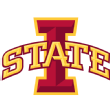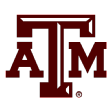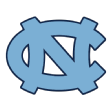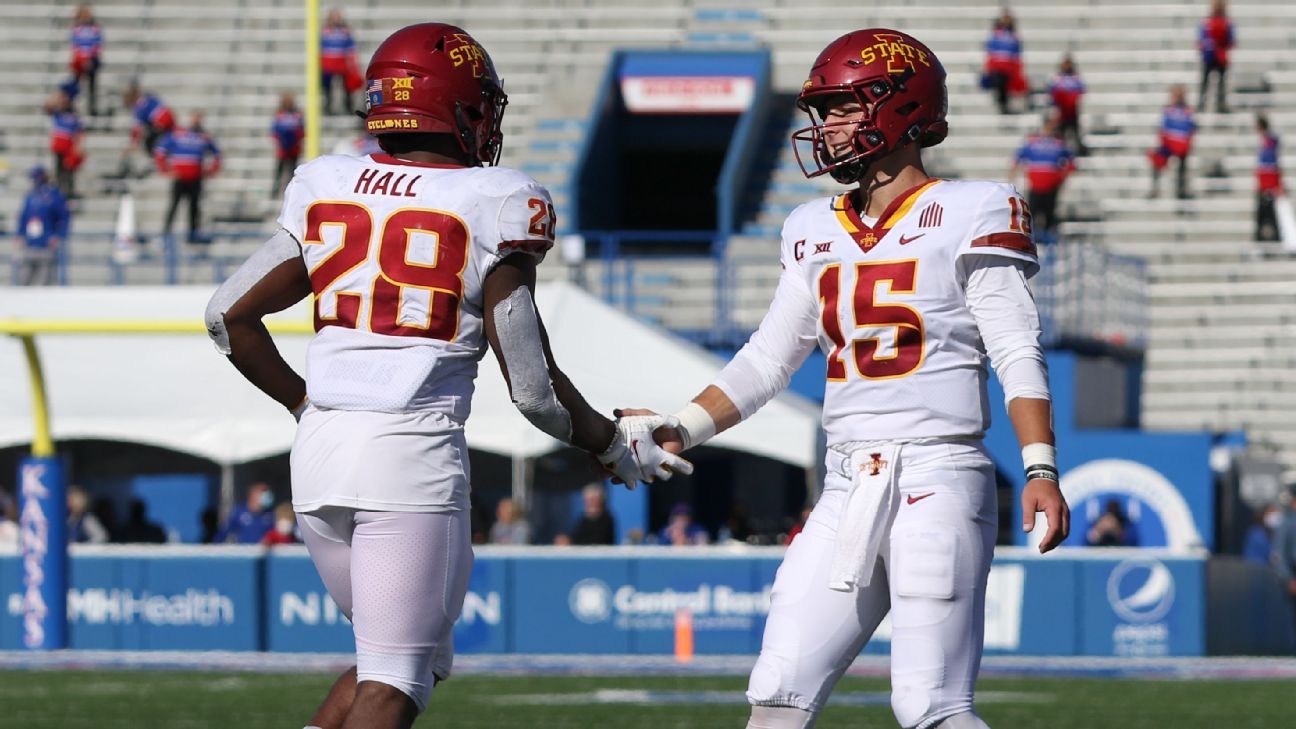While history doesn’t favor the odds, it is possible for teams other than Alabama, Clemson, Ohio State and Oklahoma to compete in the College Football Playoff.
Oregon and Washington have done it. LSU won it all in 2020.
So why not USC? Iowa State? Texas A&M?
It’s not complicated, at least for Power 5 teams (and starting with any team that has a realistic chance to win the conference), but it’s far from easy to garner serious consideration. The typical playoff path: win a conference title, knock off a handful of ranked opponents, beat a respectable Power 5 nonconference opponent and finish undefeated or with one loss.
Even then it’s not guaranteed — one team is always left out.
The sheer difficulty of winning every week, combined with the varying opinions in a subjective system, plus some scheduling luck — teams can only hope the selection committee thinks their opponents are top-25 material — are why only a handful of elite teams have appeared in the top four. Four teams — Alabama and Clemson at six apiece, and Ohio State and Oklahoma at four each — account for 20 of 28 semifinal appearances.
“I think anybody that follows football even casually can figure out that the teams you mentioned, they probably start on the inside lane in August when we start, and a lot of us start in lane eight or nine,” Iowa coach Kirk Ferentz said. “That’s always been that way, but I’d also say … over time, things can shift a little bit. Best advice: You gotta win every game. If you want to be in the final four, if you win every game, at least your chances are a hell of a lot better than they would be if you lost one. You probably have no chance if you lose one, if you’re a school like Iowa.”
What about a school like Iowa State?
Coming off a Fiesta Bowl win and a top-10 finish in the Associated Press poll, the Cyclones have a veteran team capable of winning the Big 12, and possibly more. They are No. 4 in ESPN’s Preseason Football Power Index, behind No. 1 Alabama, No. 2 Oklahoma and No. 3 Clemson.
“The reality for Iowa State is, it’ll never be easy,” coach Matt Campbell said. “… You know you have to really be clicking on all cylinders when it matters the most. We know that, we understand that. That’s the great challenge, and there’s joy of going up the rough side of the mountain. The reality here is, you’re always going up the rough side of the mountain.”
That doesn’t mean reaching the top can’t, or won’t, happen.
Here are seven teams that have never made the CFP, but have true potential to shake up an otherwise predictable postseason:

Preseason FPI: No. 4
Statement game: Sept. 11 vs. Iowa. There could be far more at stake than bragging rights in this rivalry game. Iowa has the potential to be a CFP top-25 team, and a win over the Hawkeyes could help Iowa State edge out another contender for a semifinal spot if there is a debate with another one-loss team. Or, it could help Iowa State finish in the top four with Oklahoma. If Iowa State beats OU during the regular season, but loses to the Sooners in a close Big 12 title game, don’t rule out the possibility of two one-loss Big 12 teams in the top four. According to the Allstate Playoff Predictor, the Big 12 has the second-best chance to send multiple teams to the CFP (27%), trailing only the SEC (35%).
Why to take the Cyclones seriously: Iowa State should be in the top 10 in both offensive and defensive efficiency this fall, a common trait among past playoff contenders. With the return of QB Brock Purdy and FBS leading rusher Breece Hall, FPI projects Iowa State to have the third-best offense in the nation this season, behind only Oklahoma and Ohio State. The Cyclones return six of eight players who caught at least 10 passes in 2020.
Biggest hurdle: Besides Oklahoma? Consistency. When asked recently what the key is to beating the Sooners twice in the same season, Campbell told ESPN that disciplined team football is the only way to compensate for a talent gap. “Not that we don’t have really good players, not that we don’t have talent, because we do,” Campbell said. “But there are teams in our conference that have elite talent, and a lot of it. From our end, it always comes back to how do we play the best team football that we can play each and every Saturday?” The Cyclones have to find a way to play consistently — they can’t lose to Louisiana and beat OU in the same season — and they will need to do it against the sixth-toughest schedule in the country.

Preseason FPI: No. 6
Statement game: Oct. 9 vs. Alabama. According to FPI and the Allstate Playoff Predictor, this game will have the biggest impact on the CFP race, with the winner taking the lead in the SEC West division. No. 5 A&M felt the pain of finishing on the bubble last year, and the reason can be traced back to the 52-24 loss at Alabama. It was the Aggies’ lone loss of the season, but it kept them out of the conference title game. And unlike Notre Dame, which defeated Clemson during the regular season and played for the ACC title, Texas A&M didn’t have enough on its resume to compensate for the lopsided loss, nor a championship game appearance. That could be a problem again this fall. A&M’s nonconference schedule includes Colorado, which should be better than its No. 71 FPI ranking, Kent State (No. 101) and New Mexico (No. 117).
Why to take the Aggies seriously: Because they were tantalizingly close last year, and coordinator Mike Elko and his staff have recruited what could be a championship-caliber defense. Texas A&M returns 20 of 22 players on the two-deep roster from a group that led the SEC in total defense (317.3 yards per game) last year. Although the Aggies will have a completely new look on offense with a new quarterback and almost entirely new offensive line, they’re one of four teams, along with Iowa State, Clemson and Alabama, projected to rank in the top 10 in both offensive and defensive efficiency.
Biggest hurdle: Rebuilding the offensive line. The Aggies have to replace four starters up front, the most important piece in paving the way for a new quarterback. “We’ve got a new football team,” coach Jimbo Fisher said. “Everybody’s going to say, ‘Last year,’ well, you build on it, but you’ve got a new team. Every team has its own personality, has a one-year life expectancy. A team’s only together one year, so it’s got to develop a work ethic, a standard.”

Preseason FPI: No. 13
Statement game: Oct. 30 at Notre Dame. A road win against a top-25 Irish team could propel UNC into the top four — if it can finish the season with one loss. Consider a scenario where UNC wins in South Bend, but loses a close game to Clemson in the ACC championship for its lone loss. Depending on what happens in other conferences, it’s not unreasonable to think the committee would consider both ACC teams, just as it did with Clemson and Notre Dame this past season. The Tar Heels have to make the most of that opportunity against the Irish, though, because wins against nonconference opponents Georgia State and Wofford won’t help their playoff case.
Why to take the Tar Heels seriously: They’re good enough to win the Coastal Division and earn a shot at Clemson in the ACC championship game. UNC returns Heisman Trophy hopeful quarterback Sam Howell, along with every starter on the offensive line and 10 starters on defense, and the staff has lured in a second straight top-20 recruiting class. The Coastal Division is wide open — four schools have at least a 10% chance to win the division, according to FPI — presenting an opportunity for the Tar Heels to rise above the mediocrity of the rest of the division and face Clemson in the ACC title game. “If we take down a team like Clemson,” Howell said, “I think we’ll have everyone’s attention.”
Biggest hurdle: Besides Clemson? The running game. It was a focal point for coach Mack Brown heading into this spring, as the Tar Heels have to replace two 1,000-yard rushers in Javonte Williams and Michael Carter, who both declared for the NFL draft. The Tar Heels rushed for 235.8 yards per game last season, second most in the ACC. Williams and Carter made up 84.3% of North Carolina’s rushing game in 2020, and they were the second-best duo in the country in rushing yards per game.

Preseason FPI: No. 23
Statement game: Sept. 11 at Iowa State: If the Hawkeyes start the season 2-0 with wins against IU and rival Iowa State, start paying attention. An early road win against a ranked rival will carry weight with the selection committee through November, especially if Iowa State winds up winning the Big 12 or finishing as its runner-up. According to ESPN’s FPI, this game has the fourth-highest pregame matchup quality (83.6) of all nonconference games. Iowa has an extremely tough schedule — ranked No. 2 in the Big Ten — with road trips to Iowa State, division favorite Wisconsin, Northwestern, plus a crossover game against what should be a much-improved Penn State team.
Why to take the Hawkeyes seriously: It’s a developmental program with an NFL draft track record that speaks for itself. And while there are questions in the trenches, this staff is known for maximizing everything it’s given. Iowa was on a six-game winning streak and quarterback Spencer Petras was making important strides before the 2020 season was cut short by COVID-19. Petras returns, along with leading rusher Tyler Goodson and tight end Sam LaPorta, to anchor an offense that scored at least 26 points in each of the six wins.
Biggest hurdle: Depth, particularly on the defensive line. Iowa’s defense led the nation last year in allowing opponents just 4.3 yards per play, but the Hawkeyes have to replace three of four starters up front. The lone returning starter is senior Zach VanValkenburg, who led the nation last year with four recovered fumbles. He also had 30 tackles, including 8.5 tackles for loss and 3.5 sacks.

Preseason FPI: No. 25
Statement game: Oct. 23 vs. Ohio State. The path to the playoff goes through Ohio State in the Big Ten, and Indiana pressured the Buckeyes in 2020 before losing 42-35 in Columbus, but that almost doesn’t count in the committee meeting room. The Hoosiers have to beat the Buckeyes at home to win the East division and in turn get a shot at the Big Ten title. “I do believe we’ve now put ourselves in a position where that has to be part of the conversation,” coach Tom Allen said. “Indirectly, as we talk to our team, when you’re in a Power 5 conference like the Big Ten, and when you win your conference, you’ve now earned the right to be in the College Football Playoff conversation.” A win over the Buckeyes would put them there.
Why to take the Hoosiers seriously: They’ve got something to prove, and 19 returning starters just might get it done. Quarterback Michael Penix Jr. is rehabbing from a torn ACL, but is on track to be cleared this summer. IU was bypassed for Ohio State in the Big Ten championship game last year, then dropped in the league’s bowl pecking order. Allen said his team has something to prove every day. “That’s not going away,” Allen said. “I embrace that. I’m not going to back down from that. I’ve seen when people talk about the list of teams for 2021 … that’s fine, that’s what they expect to happen. That’s fine, that’s their opinion, but I think they’re basing it off of the Indiana of the past.”
Biggest hurdle: What Allen called “the toughest schedule we’ve had since I’ve been here.” It’s No. 33 in the country, but opening at Iowa on Sept. 4 will set the tone for the season, and Sept. 18 against Cincinnati is an opportunity to impress the committee. There’s no bye until Oct. 9, and the Hoosiers will need it after a road trip to Penn State.

Preseason FPI: No. 26
Statement game: Oct. 23 at Notre Dame. If the Pac-12 is going to pull itself out of the Power 5 shadows, it has to have a playoff contender win on the national stage, and this is one of those opportunities. Seven of the Trojans’ 12 games are at home, so they need to win on the road to impress the committee. The Trojans avoid Oregon and Washington during the regular season, so beating the Irish would give their resume a much-needed boost.
Why to take the Trojans seriously: They return a veteran roster that competed for the Pac-12 title in 2020, including their quarterback, top two rushers, four starting linemen and nine players who caught a pass last year. The defense also returns 18 of its top 21 tacklers from 2020, including its leaders in sacks, tackles for loss, pass deflections and forced fumbles. The Pac-12 hasn’t sent a team to the CFP since Oregon in 2016, and while the Ducks are again the league’s preseason favorite to win the division, Oregon and USC have at least a 50-50 chance to play for the conference title, according to FPI.
Biggest hurdle: Improving the running game. The Trojans ranked last in the league and 120th in the FBS, averaging 97.3 yards per game. Helton fired offensive line coach Tim Drevno and hired Clay McGuire, who has a short amount of time to do a lot of work.

Preseason FPI: No. 27
Statement games: Sept. 18 at Indiana and Oct. 2 at Notre Dame. This is the only team on the list with two statement games because those combined opportunities are why the Bearcats made the cut here. Critics of the CFP system are adamant that a Group of 5 team will never finish in the top four, but this schedule could prove that theory wrong — if the Bearcats finish undefeated. (No pressure.) With road trips against two preseason FPI top-25 teams, Cincinnati’s schedule is tailor-made to impress the committee. If the Bearcats can beat both opponents en route to an undefeated regular season, their strength of record metric would be on par with past playoff participants. The average top-25 team would have a 15% chance to go undefeated against the Bearcats’ 2021 schedule.
Why to take the Bearcats seriously: Luke Fickell has catapulted the program into the national spotlight, winning 31 games in the past three seasons and coming a field goal away from an undefeated season last year. Expectations remain high, especially with quarterback Desmond Ridder‘s decision to return, along with three starting offensive linemen.
Biggest hurdle: Finishing undefeated. The Bearcats have a 1.2% chance to reach the playoff, according to the Allstate Playoff Predictor.
